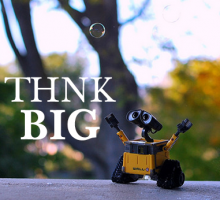By Zihan Cai
At this point, I’ve decided that understanding how case competitions work is more important than my chemistry midterm #2. Over the past few weeks, I’ve learned a library of things about research, leadership and teamwork. I’ve learned to depend a little bit on my teammates. That also means that I need to be a leader in many ways and look over the policy brief as well before it is submitted. We are a group: we cannot just each do our separate parts, shove everything together and expect it to flow. Lots of times, I’ve tried to jump at a solution quickly so that we can get down to a solid solution faster. But I’ve learned that the best solutions come with a lot of thinking and a lot of time. And just because another group came up with a solution faster, it doesn’t necessarily mean that it’s better. I try not to compare myself with them.
As a group, we’ve come a long way. All those meetings we’ve picked at each other’s gaps and played devil’s advocate with each other to come up with a really solid solution with no loopholes. I had to go to the case competition. I had to understand how they work. I can’t let me group down because they’re counting on me. And I am counting on them.
Although I didn’t feel exactly prepared for the chemistry midterm, I made a good choice in coming to this case competition. I was fortunate enough to have Sudarshan, a student who has done a bunch of case competitions, on my team. By a bunch, I mean all the little florets on a bunch of broccoli: a WHOLE bunch. He introduced me to the “Ivy Case System”, which is basically a way of organizing a case competition pitch in a logical and orderly way. Essentially, we present a situation (statement that everyone agrees with), a complication and a question. We support each part of the solution with lots of statistics. I also learned things like:
- Have professional looking PowerPoint slides, with not too many colours, and make a logo
- Look professional and wear business attire
- Shake the judges’ hands
- Step forward when speaking
- Never add on to a teammate when they are answering a question; it shows bad teamwork
Ever since the first time I won the champion’s cup in rhythmic gymnastics, I thought that maybe winning is not about chance. Maybe it is about hard work. Again and again, including today’s case competition, numerous events in my life have confirmed that statement. But I still never really believe that I can win until I actually do. And we won. We did all the things we learned: we made a logo and a professional looking PowerPoint presentation, we shook the judges’ hands, we stood forward and spoke loudly, and I managed not to add on to anyone’s responses.
The Indigo gift cards we were given as a prize were a bonus but I was mostly happy that I can tell myself that maybe life is not about probability: maybe it is about hard work. I was maybe because most nights I am still not sure.
